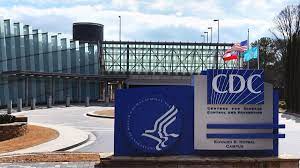
US CDC explains investments in Nigeria’s Public Health Emergency Preparedness
- Health Security
- No Comment
- 214

… Says it was necessary to build experts’ capacity to tackle multiple disease outbreaks
The U.S. Centre for Disease Control and Prevention (CDC) has reiterated its commitment to building Nigeria’s capacity in public health emergency preparedness and response, explaining that the move was to enable Nigerian disease experts to respond effectively as the country continues to experience multiple disease outbreaks.
Speaking during a media roundtable in Lagos, U.S. CDC, Dr. Muhammad Saleh, who highlighted the importance of the investment given the country’s frequent disease outbreaks explained that the U.S. CDC has been supporting Nigeria’s National Centre for Disease Control (NCDC) through its Public Health Emergency Management (PHEM) certification program.
Saleh who also presented another set of graduands of the U.S. CDC-supported Public Health Emergency Management (PHEM) said the program was designed to equip public health professionals with the skills and knowledge needed to effectively manage and respond to emergencies.
Saleh emphasised the significance of the PHEM program, noting that it has enhanced Nigeria’s capacity to manage outbreaks such as meningitis, diphtheria, and COVID-19.
The program he also said has also facilitated regional and international knowledge sharing, contributing to Nigeria’s improvement in joint external evaluations.
The U.S. CDC has invested over $2 million in supporting these efforts, and over 200 Nigerian public health staff have graduated from the PHEM program since 2017.
He also highlighted how the U.S. CDC and Nigeria are collaboratively building capacity and supporting state-level disease outbreak response.
He noted that out of the 223 international PHEM fellows from 49 countries trained by the CDC in Atlanta, U.S., only seven were from Nigeria.
Saleh said Nigeria has been a Global Health Security Agenda partner country since 2019 and is committed to the goal of ensuring the world is safe and secure from global health threats posed by infectious diseases.
Continuing, he also emphasised that through the PHEM programme, the U.S. CDC had been building capacity in Nigeria.
His words, “Catastrophic events like pandemics, natural disasters and emergence (re-emergence) of high-threat disease can affect any country any time. The PHEM programme contributes to achieving a stronger public health workforce that can adequately respond to health emergencies. It improves public health personnel’s knowledge, skills and attitudes toward emergencies. It helps build a culture of emergency management and resilience for stakeholders. It provides specialised training in PHEM care capabilities that are critical to preparedness and response,’’ he said.
Saleh noted that the programme is divided into basic, intermediate and advanced levels, stating that it has enhanced Nigeria’s capacity to manage outbreaks, including meningitis, diphtheria and COVID-19.


